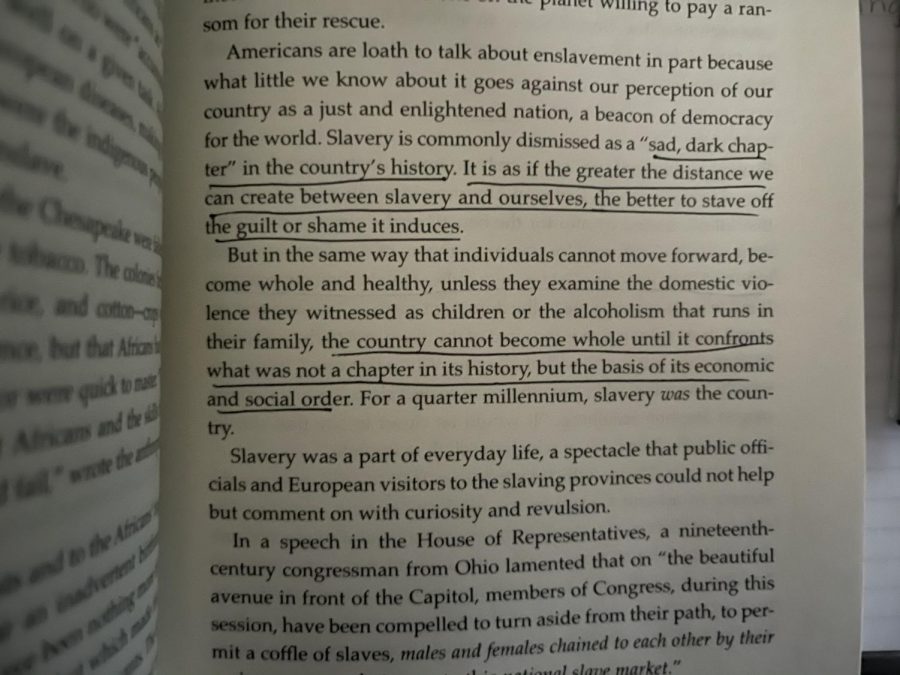‘Caste’ is the history lesson we all need
Review of Isabel Wilkerson’s book ‘Caste,’ which explores the racial caste system of America
I opened the book. Two paragraphs in, I had to stop. I sat for a few moments in awe. Never have I been so quickly struck by beautiful writing as I was by Isabel Wilkerson’s Caste: The Origins of Our Discontents.
The book examines the racial injustices of our country not just under the lens of race, but the overarching lens of caste. Wilkerson distinguishes caste as being different from race in that it is a broader term for the system which fuels our racial divisions.
Wilkerson examines the caste systems of the U.S, India, and Nazi Germany to drive home the point that caste is a social mechanism by which an upper caste remains on top by keeping lower classes below them. But the form a caste system takes can vary. Race just happens to be what our caste system looks like.
There was nothing I didn’t love about this book. It challenged my preconceived notions about race and racism like never before. I came away with a completely different outlook on how race operates in our country and a heightened understanding of the great significance of complicity.
A thought that often played through my head as I read was how we really need to do better about holding ourselves and our nation accountable for the despicable acts we have committed and are committing.
Wilkerson spent some time analyzing the overlap seen in the caste systems of the U.S. and Nazi Germany. And there were numerous commonalities due to the nature of them both being caste systems and the fact the laws which upheld America’s caste system greatly influenced the laws which upheld the caste system in Nazi Germany.
While the Holocaust and American racism are undoubtedly different, I think there is something to be said about this trend we seem to have of downplaying or simply being blind to the atrocities occurring within our borders.
And yes, this is all before our time, but it’s no less significant because history does indeed shape our future, and our present.
Wilkerson also went on to contrast how we and Germany remember the atrocities committed. In Germany, the Holocaust is a part of their school curriculum and they have erected various memorials and museums to commemorate and remember the lives lost. In America, people riot when cities want to take down a statue of a Confederate leader. That makes no sense.
Naturally, I found myself really frustrated with this country (as I often am) as I read this book. I’m constantly dumbfounded at the hypocrisy of this country’s leaders as they criticize the wrongdoings of other nations when crimes equally or more harrowing are occurring within our borders.
I think a lot of people don’t take the time to learn about the pervasive issue of racism in our country because they don’t like being frustrated or uncomfortable. Even though it may not be a necessarily pleasant experience learning about these issues, our comfort isn’t the point and such frustration is necessary to move our country to change.
I urge everyone to please go read this book. I promise it’ll be more educational than any Instagram post or U.S. History class. Bask in the beauty of Wilkerson’s writing and embrace the frustration.








































